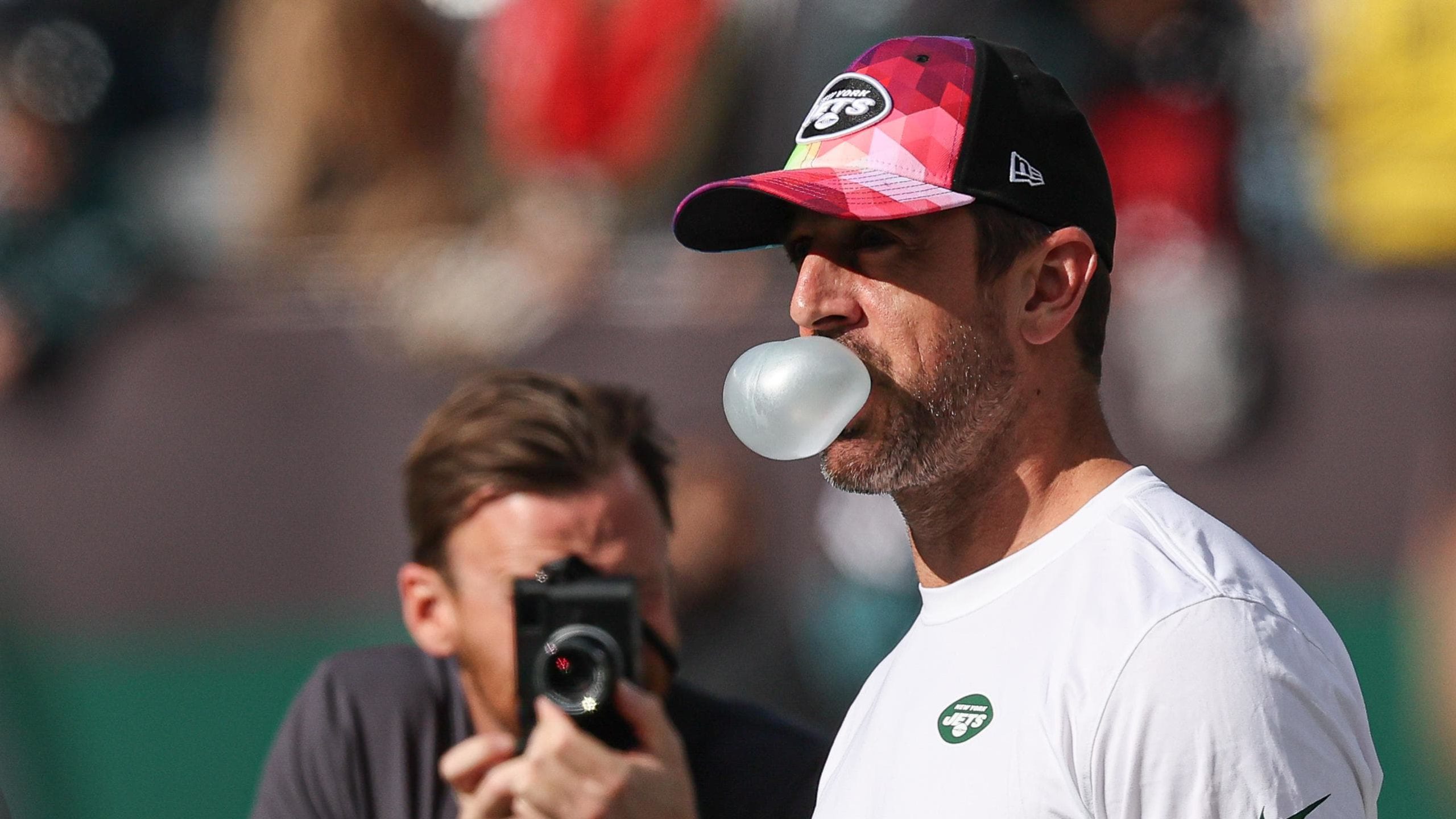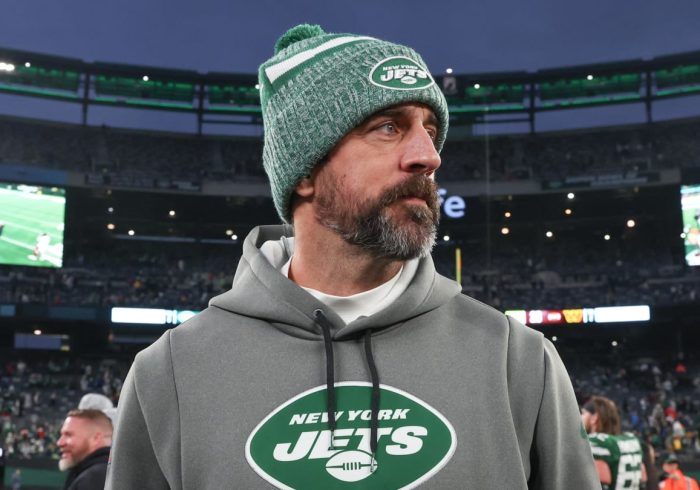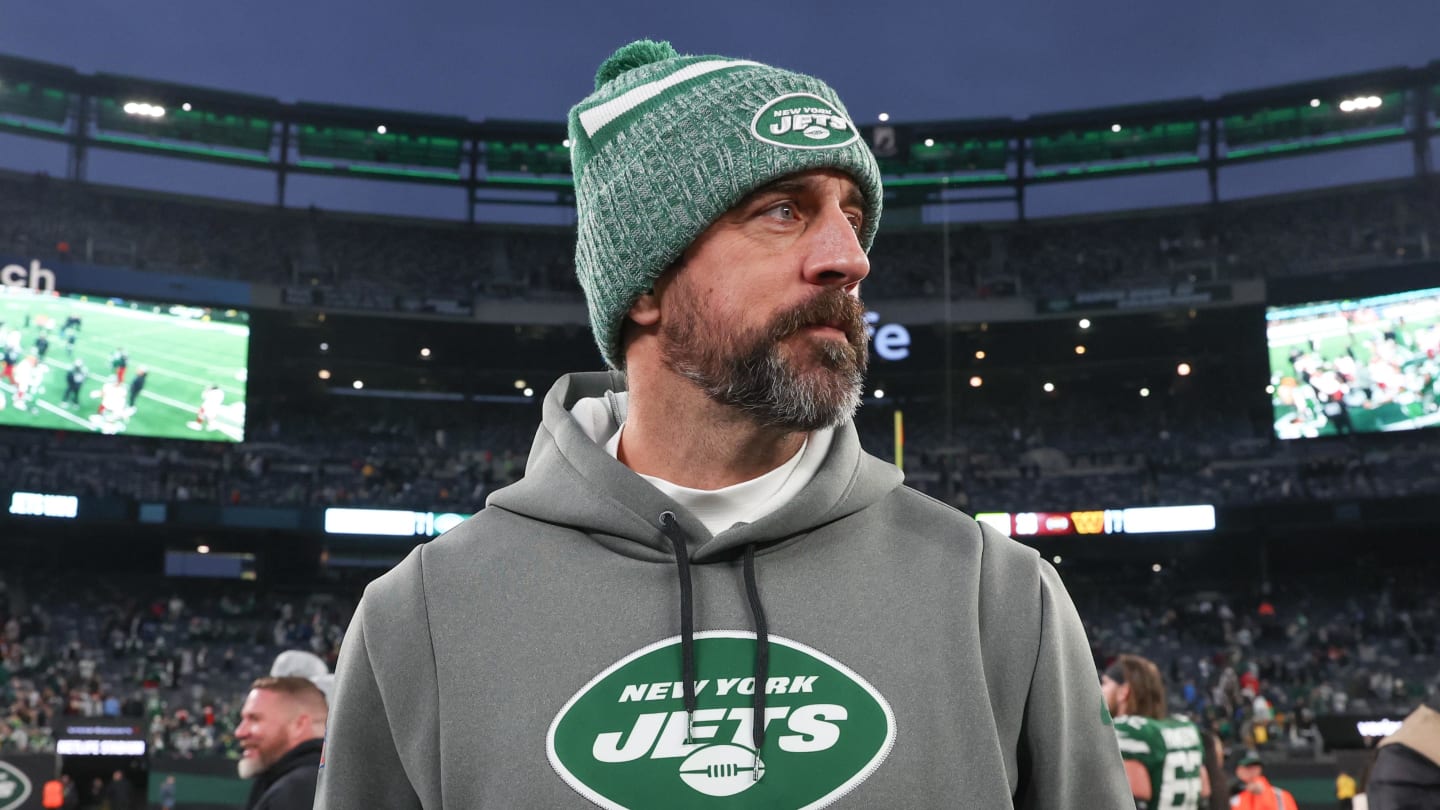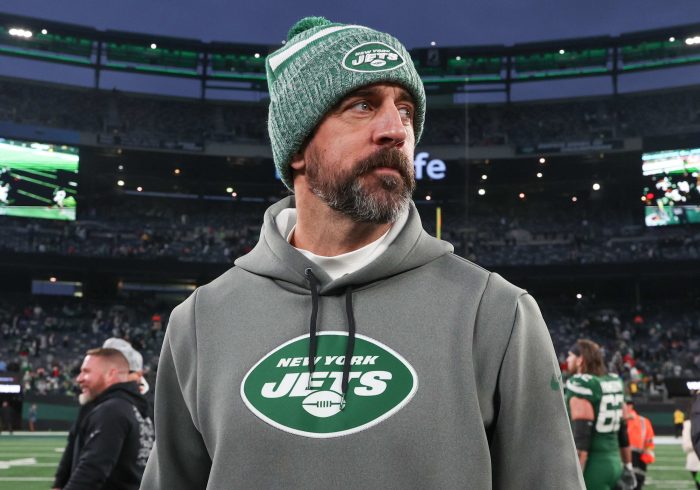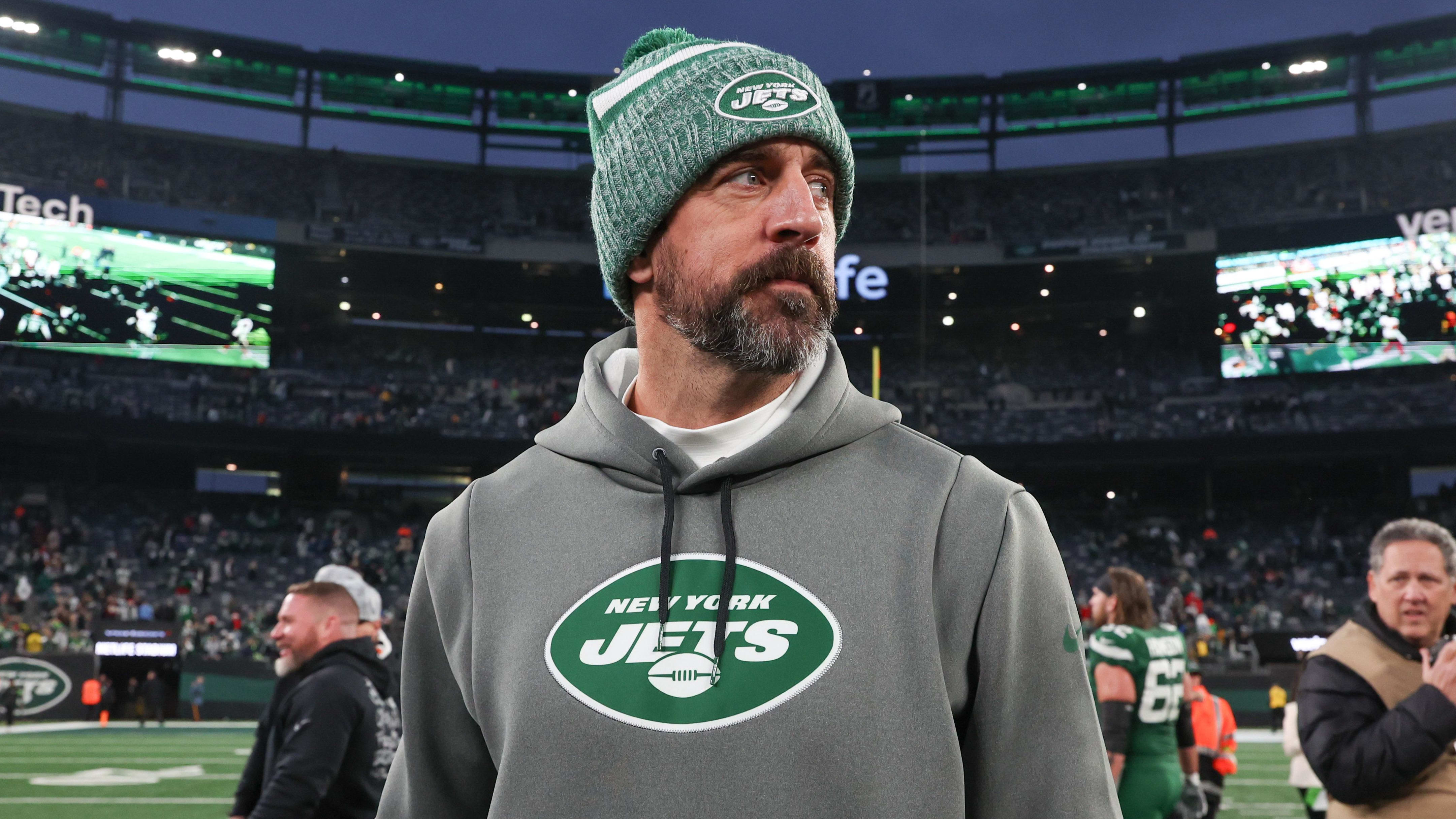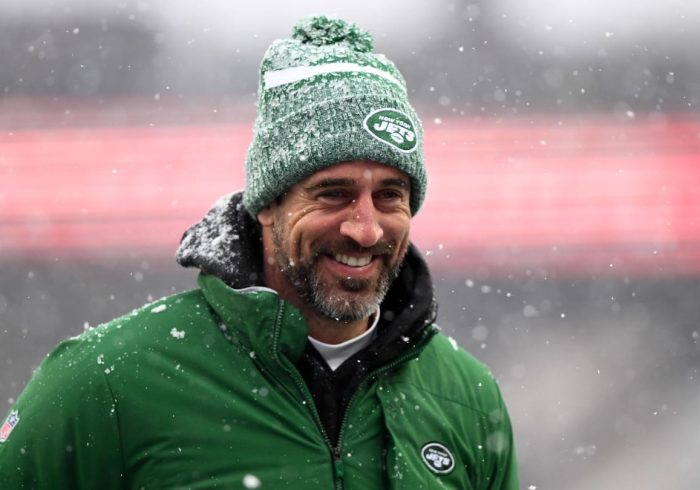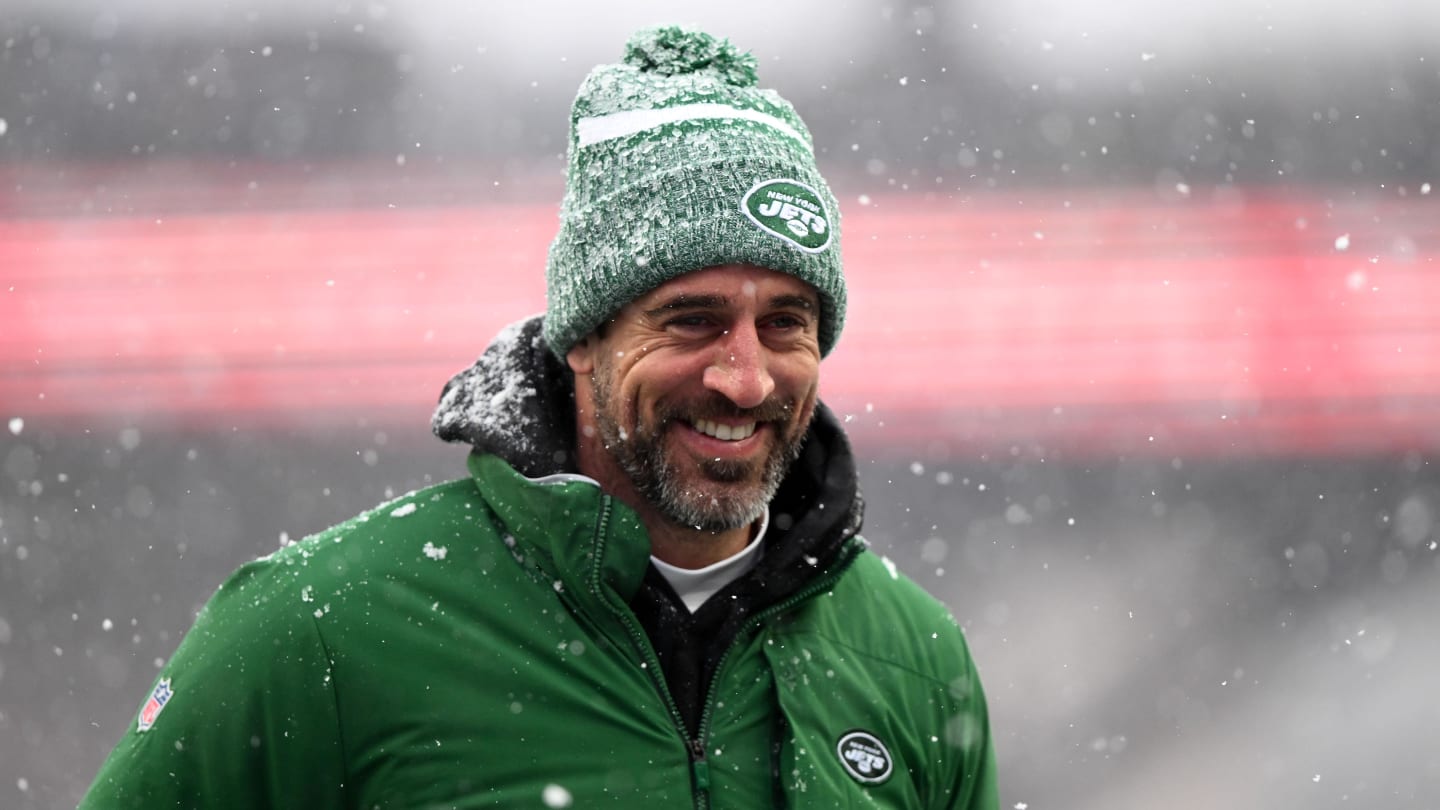Imagine sitting in the NFL schedule makers’ suite with full decision-making power and seeing an opportunity to pit the New York Jets against the Denver Broncos on Monday Night Football for the season-opener.
Here you have Sean Payton in a rematch with Jets offensive coordinator Nathaniel Hackett, whom Payton ridiculously hurled under the bus for a perceived inability to coach Russell Wilson, just months before Payton then shoved Wilson out the door and endured the biggest dead-cap hit in NFL history for his troubles. You have a healthy Aaron Rodgers, who would undoubtedly back Hackett amid the week-long rehashing of words, not to mention be enduring his own unpredictable personal publicity cycle that tends to follow him wherever he goes (a much-anticipated book on Rodgers’s life is set to be released a few weeks before, and Rodgers could very well be on the campaign trail for Robert Kennedy Jr., who reportedly considered Rodgers as a possible vice presidential candidate earlier this spring). You have Broncos rookie Bo Nix potentially starting his first NFL game. This is about as layered a programming event as one could possibly fathom, but is good only as long as Rodgers is healthy.
And while this is not a prediction—colleague Albert Breer actually brought the possibility to my attention while taping this week’s MMQB Podcast—it’s a window into how the NFL seems to operate when putting together the order of its yearly slate. Last year, it was almost egregiously tailored toward creating an attractive schedule of games with a strong narrative backbone, seemingly at the detriment of some less-interesting teams that had to slog through the season on shorter rest more frequently (and the Texans, who played no prime-time games but wound up making the playoffs and fostering Offensive and Defensive Rookie of the Year award winners).
This year, we’re left wondering whether the lineup will be as merciless, and the Jets are front and center as a kind of test case as to how little the league cares about the side effects of its own appetite for games that get people talking. In 2023, the Jets had a ridiculous six prime-time or standalone games as a result of signing Rodgers and pairing him with a promising young team that featured both the reigning Offensive and Defensive Rookies of the Year. This was the finale of an offseason-long tailwind that the team tried its best to manage despite myriad outside forces trying to take their piece (including, but not limited to, Hard Knocks also setting up its encampment in Florham Park last summer).
But I think it merits saying that the NFL cannot do this to the Jets again. The same can be said for any team that has not come off significant success the previous season but is wedged into a large part of the league’s programming calendar for the sole purpose of being a curiosity; an entity that would be just as valuable a television property in chaos as it would in prosperity.
I’ll back up and admit that, in 2023, no one could blame the schedule makers for the Jets in particular, and I would guess that the team’s owner, Woody Johnson, was thrilled with the attention after years of—at best—a sort of painful indifference. I also understand those who would offer little other than the world’s smallest violin playing the world’s saddest song for a team that hunted its mercurial quarterback out of a darkness retreat.
To me, though, lopping basically 10% of your prime-time programming onto the plate of a team that was still trying to figure out its own identity and recover from the offseason and preseason hangover is daring them to fail, and then purchasing a short on the inevitability that it will so you cash in anyway. That’s not acting in the best interest of an optimal NFL, that’s taking a baseball bat to a bee’s nest. Sure, obtaining honey is one of the many outcomes. Is it the most likely? Hell no. That’s facilitating a reality show to prop up every convoluted, content-starved tentacle attached to the core of the product (I suppose I would count Sports Illustrated and myself among those people, for the record). It’s a gauntlet that is impossible to win through and creates a disproportionate number of road games with short rest. Though the Jets had a sizable positive rest differential, it’s so incredibly difficult to struggle publicly with a full prime-time treatment once every three weeks.
So, we’ll see how the NFL decides to treat the Jets in 2024, whether they double down on the reality show or return the favor with a more generously anonymous slate.
